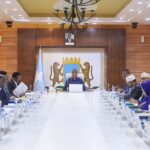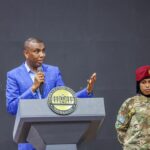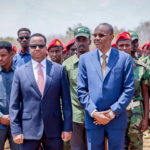KISMAYO, Somalia — Jubaland’s newly formed parliament was officially inaugurated on Tuesday, marking a pivotal moment in the semi-autonomous state’s political landscape as it moves towards electing a new regional president.
The event unfolded in Kismayo, the regional capital, where 75 newly elected members of parliament were sworn into office in a ceremony that underscored the region’s determination to assert its autonomy despite opposition from the central government in Mogadishu.
This parliamentary induction comes in the wake of significant tension with Somalia’s central authority, which has labeled the electoral process as unconstitutional. The federal government, under President Hassan Sheikh Mohamud, has voiced concerns over the legitimacy of the elections, suggesting that the process was initiated without adequate legal backing or consultation with the national capital.
The Jubaland Electoral Commission, however, has pushed forward with the electoral activities, signaling a bold move towards self-governance. The new parliament’s first order of business will be to elect a speaker on November 21, a crucial role in steering the legislative agenda.
Following this, the much-anticipated election of the regional president is scheduled for November 25, when the parliament will exercise its power to choose the leader of Jubaland.
The process has not only highlighted the ongoing rift between regional and federal dynamics in Somalia but also set the stage for potential power shifts within Jubaland. The state, which plays a critical role in regional stability due to its strategic location and ongoing conflicts with al-Shabaab, now seeks to solidify its political structure independently of Mogadishu’s directives.
Local observers and citizens alike are watching closely as these developments could either lead to a more autonomous and stable Jubaland or further exacerbate the existing tensions with the federal government.
The outcome of these elections could have far-reaching implications for the relationship between Somalia’s federal government and its member states, especially under the backdrop of Somalia’s fragile political and security landscape.
As Jubaland charts its political course, international eyes are also on the process, given the region’s importance in the broader fight against terrorism and its implications for regional peace and governance.
The federal government has yet to outline its response strategy to what it perceives as an unconstitutional act, potentially setting the stage for diplomatic or political negotiations in the coming days.






